









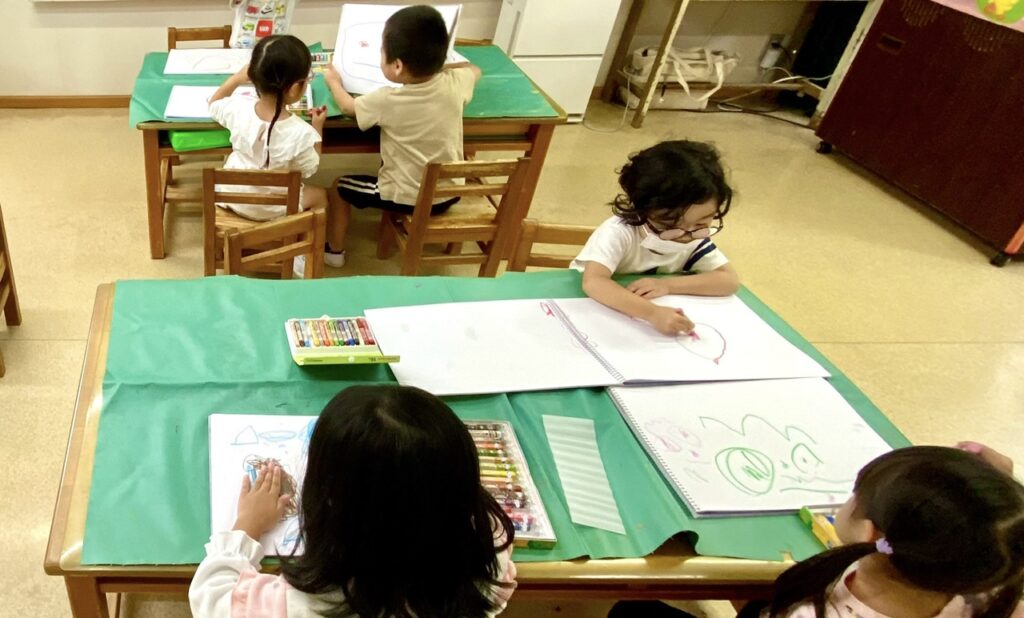
.
.
年少組さんたちが、今日も楽しそうにクレヨン遊びをしています。
.
.
クレヨンを手に、くるくる。
いろんな色を使って線を描いたり、
夢中で塗りつぶしたり──
子どもは自分で考えて「どの色にしようかな~」と色を選んでいる様子があり、
描くことそのものを楽しんでいます。
.
.
.
1歳半~3歳頃には、なぐり描き期とかスクリブル期と言われる大切な時期。
見た目には分かりにくかったり、意味がないように見えるものを描いていて、
線や形に意味を持たせることよりも「描くことそのものが面白い」という発達過程の時期で、そのうちだんだん「形」を意識した描写に変わっていきます。
・
.
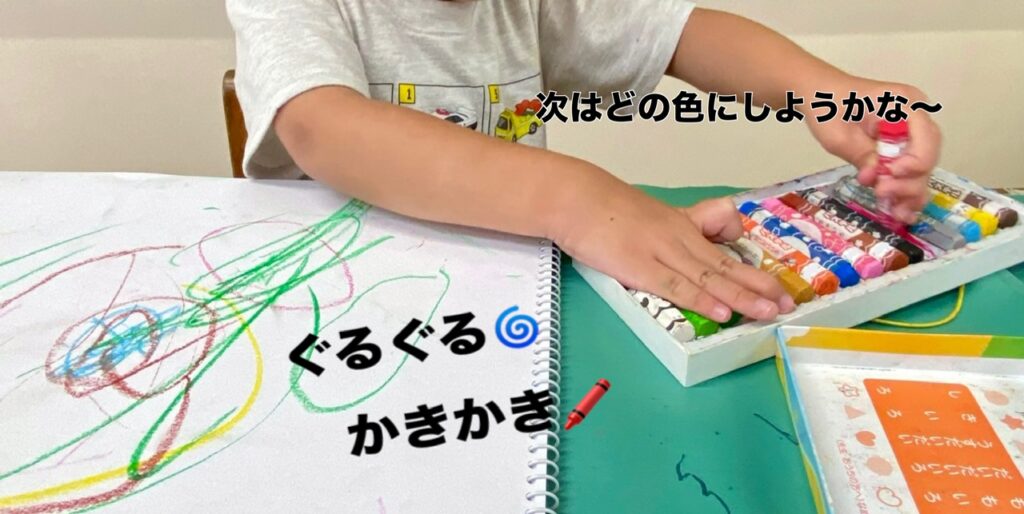
.
.
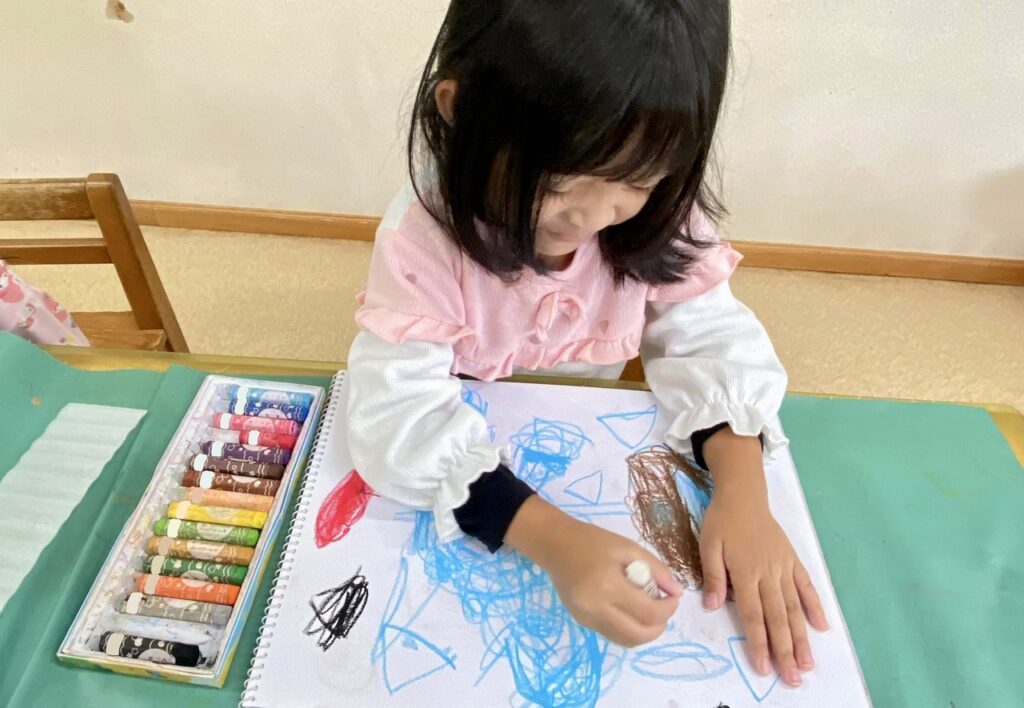
.
.
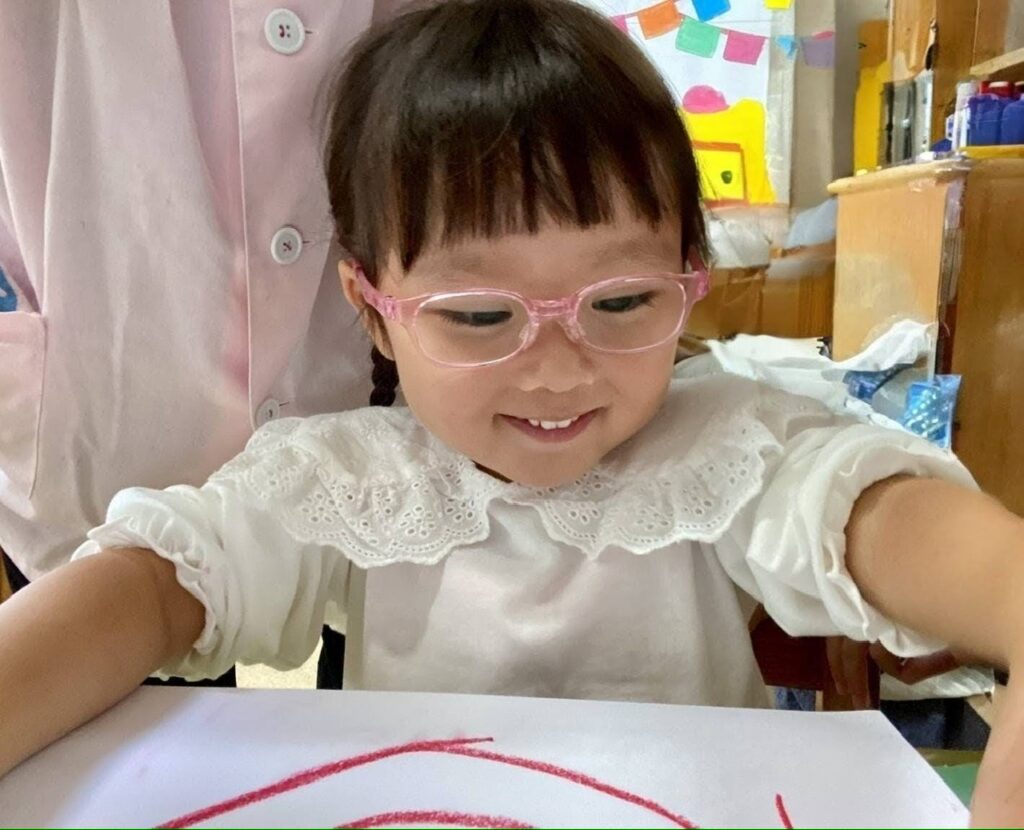
・
.
なぐり描き期を終え、
運動会の玉入れの様子を描いている子も.
.
.
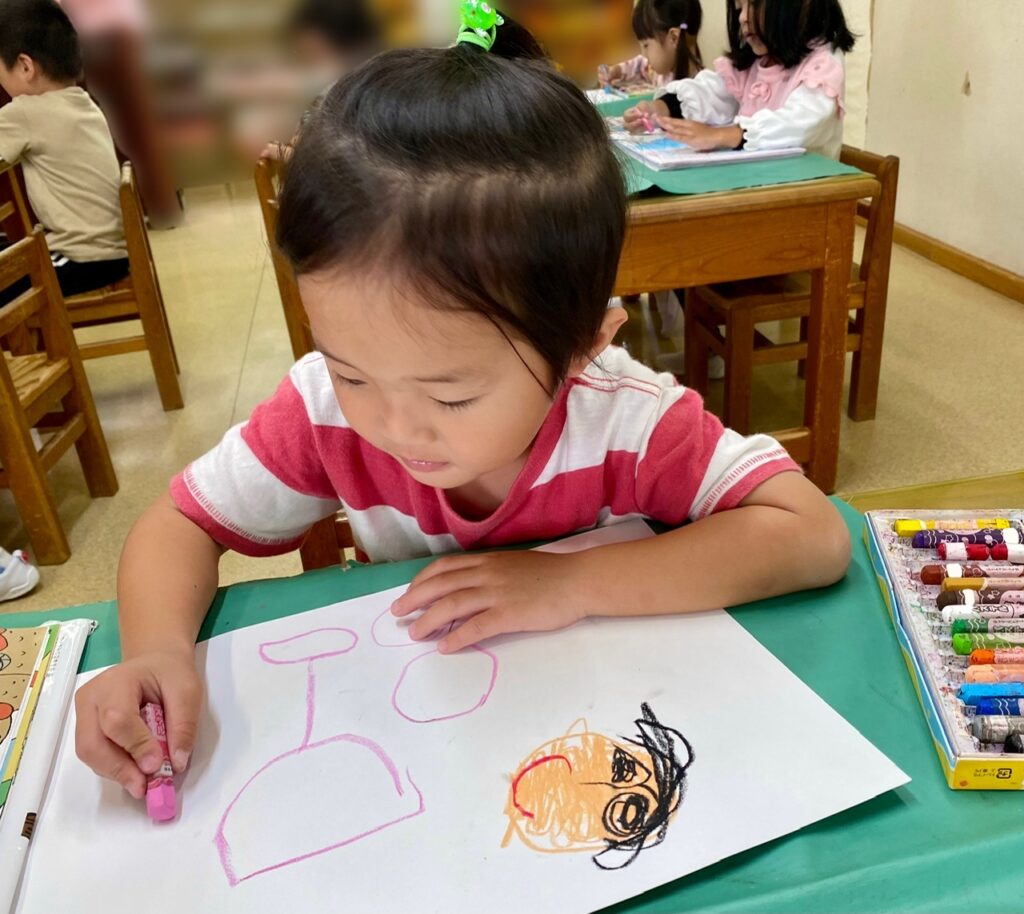
.
.
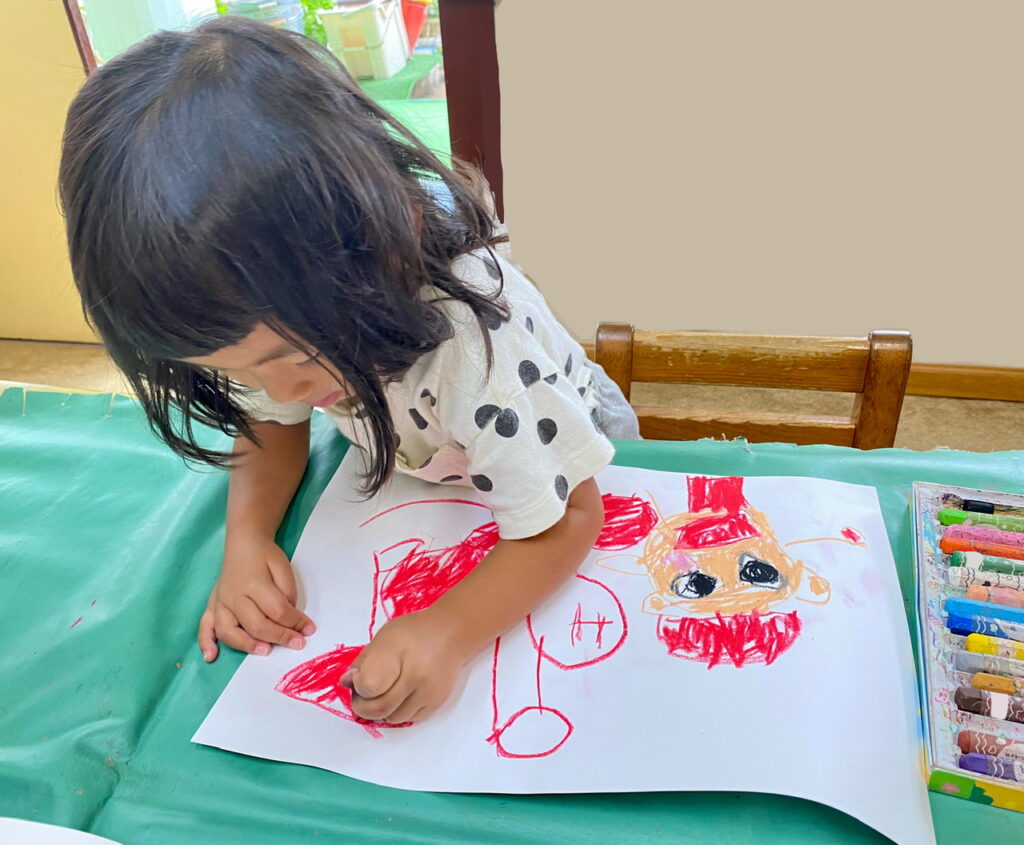
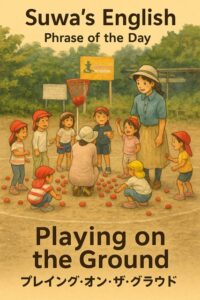
.
.
先週末に行う予定の運動会でしたが、😩残念ながら当日は雨で中止になりました。
.
.
1週間の延期後、ようやく迎えた今日の「運動会」🏃♂️🎉。
.
.
朝から🌧️雨が降ったり止んだりし、開催が危ぶまれ霧雨がぱらつく場面もありましたが、子どもたちの元気な声が空に届いたのか、途中から雨もやみ、
最後まで無事に開催することができました。
かけっこでは、力いっぱいゴールをめざして走る姿。
ダンシング玉入れでは、音楽に合わせてダンスし、音楽が途中で止まると夢中で玉を投げた笑顔。
リレーでは、バトンをつなぐドキドキと気合いが込められていました。
年少組のお遊戯では小さいながらも個性がキラキラと輝いていました✨
.
.
.
そして運動会のフィナーレを飾ったのは、
年中・年長組による日本伝統演舞の「剣舞」
諏訪幼稚園では、園の伝統として運動会に「剣舞」を行い日本文化を大切にしようと「剣舞」を続けています。
真剣なまなざしと力強い動きに、観客の皆さんから大きな拍手が送られました。
.
.
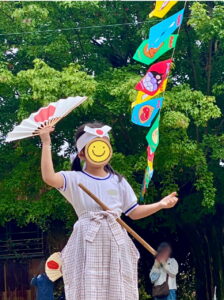
.
.
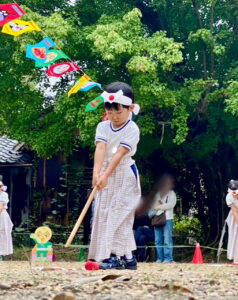
.
.
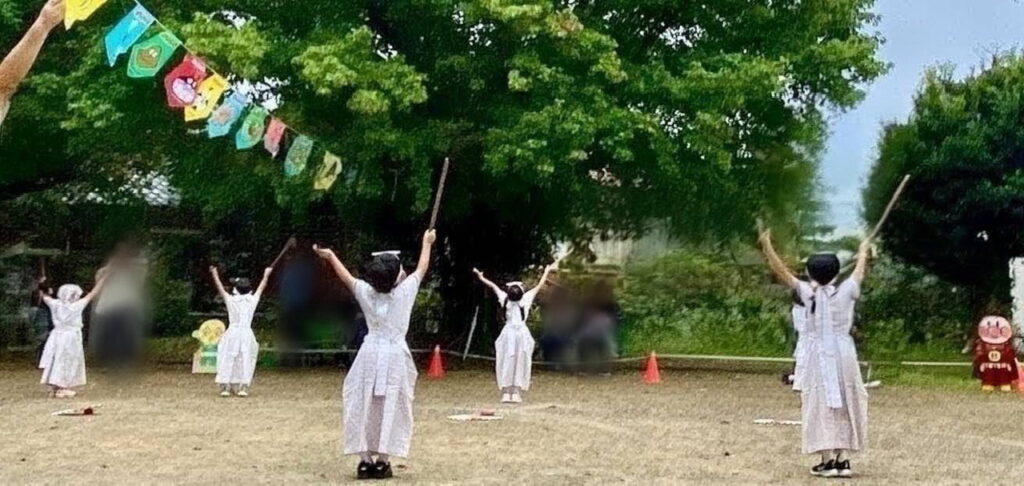
.
朝早くから会場設営や片づけなどにご協力くださった保護者の皆さま
温かい応援とお力添えを本当にありがとうございました🙇♀️
.
皆さまのご協力のおかげで、子どもたちにとって忘れられない運動会になりました。
子どもたちにとって、仲間と力を合わせる大切さや頑張ることの喜びの経験となったとことと思います。
.
.
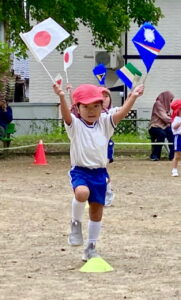
.
.
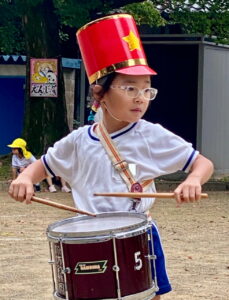
.
.
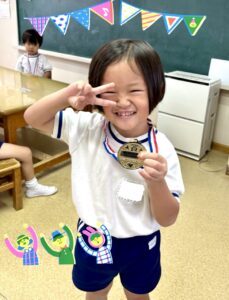
大きな荷物が幼稚園に届きました。
子どもたちも集まって来て「かぼちゃだ、カボチャ!」と嬉しそう。
🎃💓 🎃💓 🎃💓 🎃💓 🎃💓
.
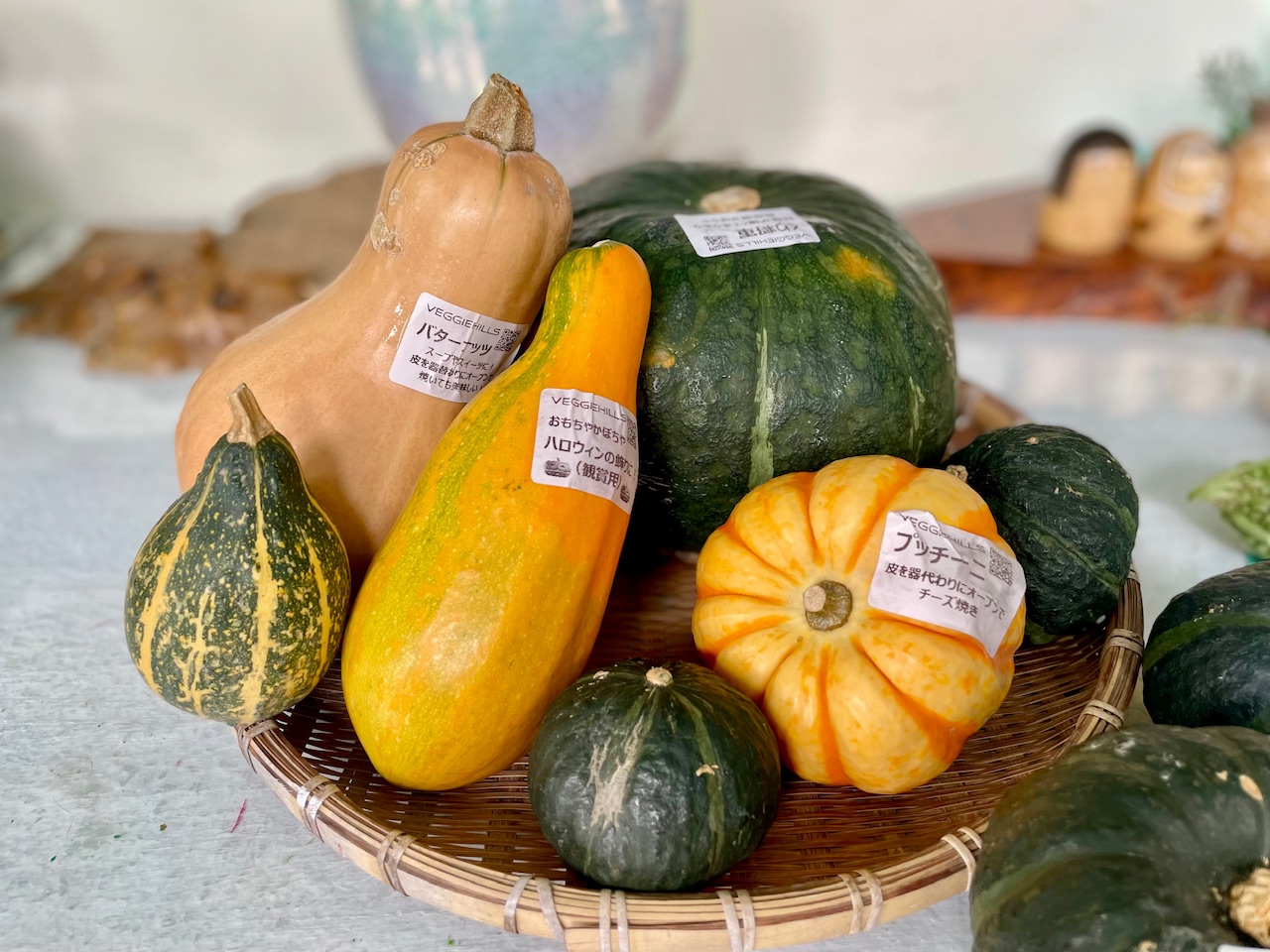 .
.
.
送り主は、いつも食農教育でお世話になっている有機栽培専門家山岸さんご夫妻から。
.
カボチャは次回、第4回の食農ワークショック「かぼちゃの種類」で使います。
.
.
.
🎃「くり将軍」
🎃「おもちゃカボチャ」
🐈⬛「プッチーニ」
🎃「バターピーナッツ(この名前ですが、れっきとしたカボチャです)」
🎃「坊ちゃんかぼちゃ」
🐈⬛「九重栗」
岐阜のお店では見かけない品種もありました。
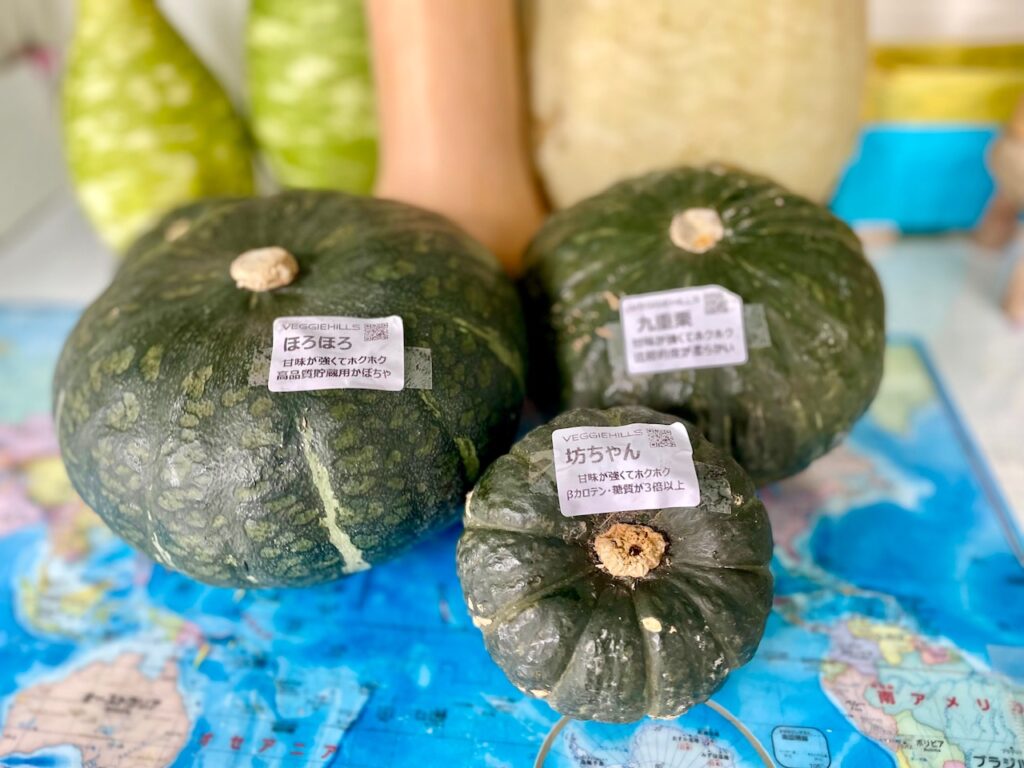
🍠サツマイモも一緒にとどきましたよ🍠
.
・
